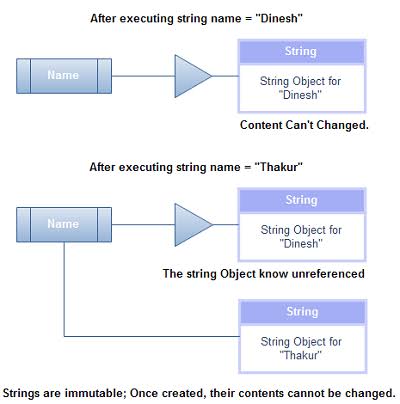Why Are Strings Immutable in Java? Finest Practices and Usage Instances
Why Are Strings Immutable in Java? Finest Practices and Usage Instances
Blog Article
What Is Immutable Strings and Just How It Works
In the world of programming, understanding the idea of immutable strings is critical for developing durable and protected applications. Unalterable strings refer to strings that can not be changed after they are produced, making certain data integrity and predictability within the code.
The Essentials of Immutable Strings
Unalterable strings, as a fundamental concept in shows, are character series that can not be changed as soon as they are created. This suggests that as soon as a string is designated a worth, that value can not be altered. In languages like Python and Java, strings are immutable things, causing numerous effects in regards to memory administration and data integrity.
One of the crucial benefits of unalterable strings is that they provide a feeling of safety in information manipulation. Since the web content of an immutable string can not be changed, it ensures that the original information stays intact, lowering the risk of unintentional adjustments during program implementation (Why are strings immutable in Java?). This building additionally streamlines debugging processes, as developers can trust that when a string is specified, its value will not be unintentionally altered
When a new string is produced based on an existing one, rather than modifying the original string, the new worth is kept individually. Overall, understanding the fundamentals of unalterable strings is important for mastering programs principles and maximizing code efficiency.
Advantages of Immutable Strings
Structure upon the protection and efficiency benefits of unalterable strings, their advantages encompass boosting code integrity and simplifying concurrent programming jobs. By being immutable, strings can not be customized after development, which removes the danger of unintended adjustments in the data they save. This fundamental immutability makes sure that when a string is developed, its worth remains consistent throughout the program's implementation, minimizing the opportunities of pests brought on by unforeseen modifications.
Furthermore, immutable strings contribute to code integrity by making it less complicated to reason concerning the state of a program. Considering that strings can not be altered, developers can trust that a string will certainly constantly hold the same worth, streamlining debugging and maintenance initiatives. This predictability leads to much more steady and reliable codebases.

Implementation in Programs Languages
Within various programs languages, the incorporation of immutable strings is a basic element that impacts exactly how information is managed and adjusted within code structures. The execution of unalterable strings varies across different shows languages, with each language providing its own mechanisms to support this principle.

In comparison, languages like C and C++ do not have integrated support for immutable strings. Developers in these languages must manually apply immutability by implementing rules within their code to avoid straight adjustments to string objects.
Finest Practices for Functioning With Unalterable Strings
When handling immutable strings in programming languages like Java and Python, sticking to best practices makes certain protected and reliable data control. Among the key finest practices is to use StringBuilder or her latest blog StringBuffer instead of directly manipulating strings, especially when dealing with considerable concatenation procedures. These classes supply mutable alternatives for string adjustment, assisting to prevent unneeded memory allowances and boosting efficiency.
In addition, when working with sensitive information such as passwords or API secrets, it is essential to avoid storing them as plain message in unalterable strings. Using secure storage devices like char ranges or specialized collections for taking care of delicate details helps minimize protection threats linked with unalterable strings.
Real-world Applications and Examples
Exploring practical executions of unalterable strings in numerous industries exposes their substantial influence on information integrity and system reliability. In the healthcare industry, immutable strings play a this contact form critical function in ensuring the security and confidentiality of person information. By avoiding unauthorized alterations to sensitive details such as clinical records and prescriptions, unalterable strings assist maintain conformity with stringent personal privacy laws like HIPAA.
Banks also profit from the immutable nature of strings to improve the safety of consumer data and transaction documents. Unalterable strings help protect against fraudulence and unapproved alterations to financial details, supplying a durable defense versus cyber hazards and making certain the depend on and confidence of customers.

Conclusion
Ideal methods for working with unalterable strings include staying clear of straight modifications and using approaches that return brand-new string items. Real-world applications of unalterable strings consist of data file encryption, caching, and string adjustment tasks.
Unalterable strings refer to strings that can not be modified after they are created, making sure data honesty and predictability within the code. When a brand-new string is created based on an existing one, instead than changing the initial string, the new worth is kept individually.In languages like Java and Python, strings are unalterable by default, meaning that as soon as a string item is produced, its worth can not be transformed - Why are strings immutable in Java?. Best techniques for working with unalterable strings consist of preventing straight adjustments and utilizing techniques that return brand-new string items. Real-world applications of immutable strings consist of information security, caching, and string adjustment tasks
Report this page